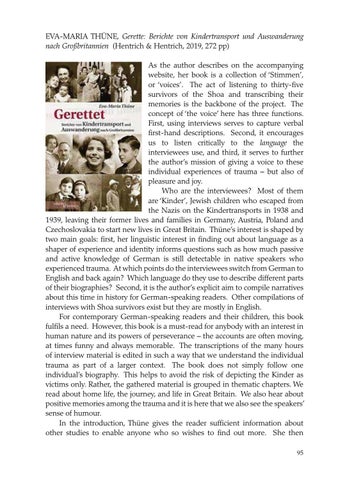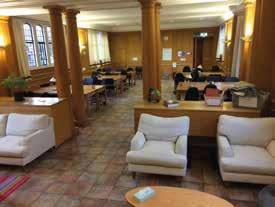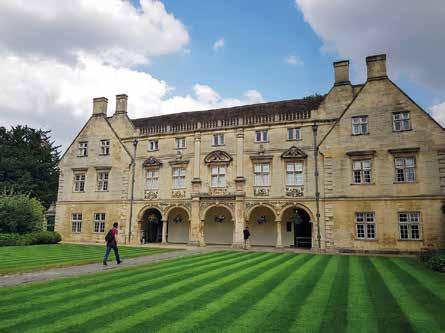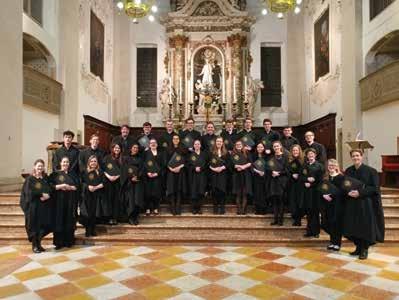EVA-MARIA THÜNE, Gerette: Berichte von Kindertransport und Auswanderung nach Großbritannien (Hentrich & Hentrich, 2019, 272 pp) As the author describes on the accompanying website, her book is a collection of ‘Stimmen’, or ‘voices’. The act of listening to thirty-five survivors of the Shoa and transcribing their memories is the backbone of the project. The concept of ‘the voice’ here has three functions. First, using interviews serves to capture verbal first-hand descriptions. Second, it encourages us to listen critically to the language the interviewees use, and third, it serves to further the author’s mission of giving a voice to these individual experiences of trauma – but also of pleasure and joy. Who are the interviewees? Most of them are ‘Kinder’, Jewish children who escaped from the Nazis on the Kindertransports in 1938 and 1939, leaving their former lives and families in Germany, Austria, Poland and Czechoslovakia to start new lives in Great Britain. Thüne’s interest is shaped by two main goals: first, her linguistic interest in finding out about language as a shaper of experience and identity informs questions such as how much passive and active knowledge of German is still detectable in native speakers who experienced trauma. At which points do the interviewees switch from German to English and back again? Which language do they use to describe different parts of their biographies? Second, it is the author’s explicit aim to compile narratives about this time in history for German-speaking readers. Other compilations of interviews with Shoa survivors exist but they are mostly in English. For contemporary German-speaking readers and their children, this book fulfils a need. However, this book is a must-read for anybody with an interest in human nature and its powers of perseverance – the accounts are often moving, at times funny and always memorable. The transcriptions of the many hours of interview material is edited in such a way that we understand the individual trauma as part of a larger context. The book does not simply follow one individual’s biography. This helps to avoid the risk of depicting the Kinder as victims only. Rather, the gathered material is grouped in thematic chapters. We read about home life, the journey, and life in Great Britain. We also hear about positive memories among the trauma and it is here that we also see the speakers’ sense of humour. In the introduction, Thüne gives the reader sufficient information about other studies to enable anyone who so wishes to find out more. She then 95
Magdalene College Magazine No.63 2018-19

Issuu converts static files into: digital portfolios, online yearbooks, online catalogs, digital photo albums and more. Sign up and create your flipbook.














